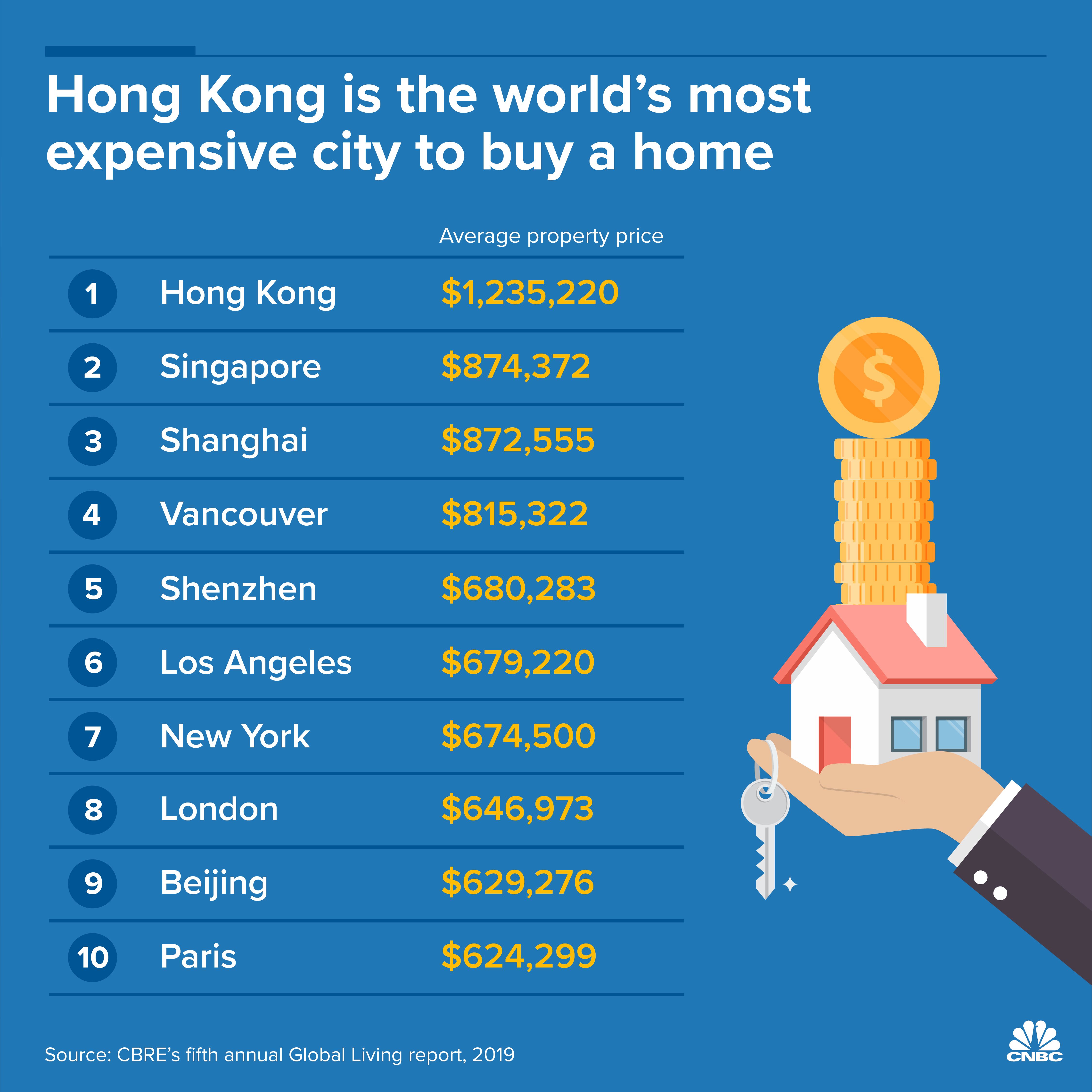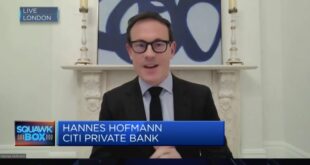A widening wealth gap and increasingly unaffordable housing are some key social issues underpinning the unrest in Hong Kong, business leaders and politicians have suggested.
Rental prices in Hong Kong surpass those in New York, Paris and Singapore, and many young professionals living in the Chinese-ruled territory struggle to afford housing. Some families have no choice but to rent out dorm-style rooms with bunk beds and shared bathrooms, sometimes known as “coffin homes” or “shoebox flats.”
In her annual policy speech on Wednesday, Hong Kong chief executive Carrie Lam introduced a slew of housing measures aimed at addressing some of those concerns.
Lam said housing is the “toughest livelihood issue” facing the city’s citizens and pledged to make more land available for public housing development, according to an official translation of her remarks in Cantonese. The Hong Kong leader emphasized that housing issues are essential to social stability and “upward mobility,” defined as climbing up to the next social level.
“Every Hong Kong citizen and his family will no longer have to be troubled by, or preoccupied with, the housing problem, and that they will be able to have their own home in Hong Kong, a city in which we all have a share,” Lam pledged.
Hong Kong — a former British colony returned to Chinese rule in 1997 — has been crippled by widespread demonstrations for nearly five months now. It operates as a semi-autonomous territory under the “one country, two systems” principle — a structure that grants Hong Kong citizens some degree of financial and legal independence from the mainland.
What started out as protests against an extradition bill has morphed into demonstrations demanding full democracy and universal suffrage. Majority of the protesters have been young students from university and high schools.
Twin cities: Singapore and Hong Kong
Hong Kong has been repeatedly ranked as the most expensive place to own a home. The Asian financial hub has an average living space of about 13 square meters per person in 2018 — or an area smaller than the size of two average bathtubs laid out side by side.
On Wednesday, Singapore’s Prime Minister Lee Hsien Loong weighed in on Hong Kong’s housing situation, saying that homes there are”very expensive,” making it hard for young people to afford them.
“A flat costs 22 years’ worth of income, so it’s not practical, and even to rent a space is very expensive,” Lee said at the Forbes Global CEO Conference. “So people feel: ‘What am I slogging for, where’s the future? Where’s the pot of gold?'”
Allan Zeman, chairman of property and entertainment conglomerate Lan Kwai Fong Group, also said in August that the “real problem” fueling the anti-government movement is that “young people don’t see chances for upward mobility.”
Home ownership is far more difficult in Hong Kong than in Singapore, Zeman told CNBC, adding that salaries in Hong Kong have stagnated for nearly three decades even though the city is now the world’s most expensive housing market.
Due to its legal and financial autonomy, Hong Kong has often been the first stop for many foreign firms trying to access the massive Chinese market. Until recently, trade was robust and capital flew in, making many Hong Kongers very rich. Still, the income discrepancy has continued to widen.
The port cities of Singapore and Hong Kong are often compared to each other, as both financial hubs have high GDP per capita and were former British colonies.
The two cities are often referred to as “twin cities” and competitors in seeking to attract the multinational companies looking to set up their Asia-Pacific headquarters.
Hong Kong’s home ownership rate in 2018 was 49%. That’s compared to Singapore, which boasts a 91% in home ownership, largely in part due to the generous government policies.

Lam’s policy address pledged that about 700 hectares of land in the New Territories would be brought back into public use under what is known as a land resumption ordinance.
The Hong Kong leader’s new policies appeared to have some similarities to some of Singapore’s housing initiatives. They include: incentives for first-time home buyers and new public housing apartments that will be highly subsidized.
Singapore’s Lee said Wednesday “there are solutions to (tackle the Hong Kong unrest), but they’re radical.”
“They require not only a lot of political courage, but you must be prepared to make changes which will have very significant social and economic consequences,” Lee said.
He also called on both sides to calm down. saying: “Before you can make progress, I think it’s necessary for temperatures to come down so that we can get people to work together.”
— CNBC’s Weizhen Tan contributed to this report.
 EU News Digest Latest News & Updates
EU News Digest Latest News & Updates


